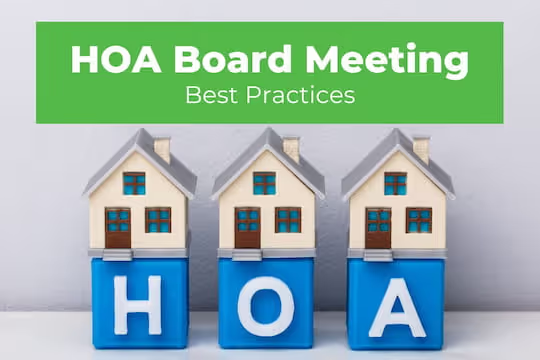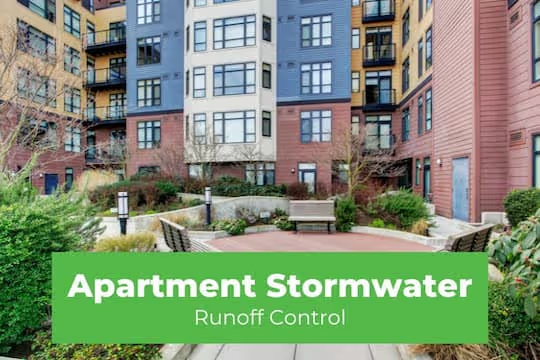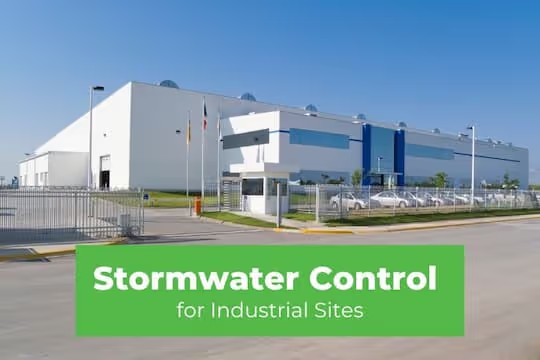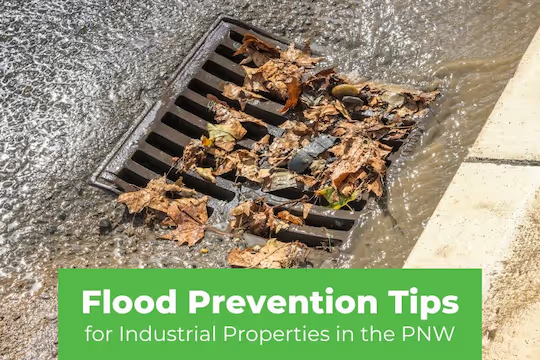Strong, effective homeowner associations (HOAs) add value to the community, increase property values, and work well when community members get involved. Homeowners volunteer their time to participate or hold board positions, and they will stay engaged and achieve more when meetings run well and stay focused.
Best practices are specific techniques generally accepted as superior to known alternatives because they often produce better results. HOA board meetings must follow particular rules, but this does not guarantee that discussions stay focused, helpful, or give homeowners a chance to be heard.
The following HOA board meeting best practices can help board meetings run smoothly while ensuring a better outcome for all involved parties.
Craft a Well-Organized Agenda

Each HOA has state laws and governing documents that dictate the basic requirements for board meetings. Use these to structure the meetings and keep members engaged and focused by including only necessary agenda items.
An effective board meeting agenda centers around the most urgent or essential topics and does not have to cover every last issue.
A well-structured meeting agenda includes several key components. Start with old business from previous meetings, then new business. Next, review committee reports, review open action items, and discuss treasury information on the prior month’s financial activities. Additionally, include time for homeowners to speak.
Keep the Meeting Focused and Concise
This information might be a big shock (sarcasm intended), but HOA board meetings can often get sidetracked and completely off-topic. The main goals for the meeting are agenda-based discussions, updates, and motions related to moving the HOA’s important goals forward.
For HOA board meeting best practices, keep meetings on the topic by setting agenda guidelines. Any discussion topics outside these guidelines must be handled at another time. Accordingly, the individual charged with running the meeting should be prepared to tactfully table any circular discussions that may develop regarding difficult agenda items for the time being and keep the meeting moving forward.
In a nutshell, simpler is better. Keep meetings focused on items that need votes from board members and other high-level topics when possible.
Board meetings also risk turning into social get-togethers, discouraging members from attending if they think the meeting will run long and get little accomplished—aim to keep sessions to no more than an hour, or 90 minutes maximum each.
Set Time Blocks for Agenda Items

Successfully and efficiently covering all essential agenda items requires a time budget for each. Assign a member to monitor and call time when any topic goes more than 10 minutes over its allotted time. Otherwise, one contentious or complex issue could consume an entire hour if no one enforces time boundaries.
For agenda items that run past their allotted time, table the discussion and move on to the next agenda item. Sticking to this HOA board meeting best practices policy consistently also helps encourage members to come to meetings with their thoughts prepared.
Set Limits for Homeowner Speaking Time
Homeowners need to have a voice at the meetings. Their input is invaluable in the planning process for future community projects and improvements. The challenge lies in making space for homeowners to participate in meetings without these communications derailing the whole agenda.
Include an agenda timeslot for homeowners at the beginning or end of the meeting and consider soliciting questions and comments before the meeting. This best practice helps board members to better prepare and saves time.
Wrap-Up Meetings Effectively
One sign of a successful HOA meeting is when all members leave with the same clear understanding of what discussions and decisions took place, what action items need to be done, and by whom.
To close each meeting, spend a few minutes reviewing the session’s action items and each board member’s role and responsibility. Confirming with each member before ending the meeting prevents misunderstandings.
Serve the Best Interests of the Association and Homeowners
It might seem obvious, but with a diverse population of homeowners and various personal agendas, the “right” action is not always clear.
These additional HOA board meeting best practices for communicating and operating can help the board and directors avoid common pitfalls and encourage community residents to engage more and take board positions.
- Communicate often and with transparency. Publicize the agenda for meetings ahead of time, and use a newsletter, mail, or social media site to share progress on current board projects.
- Post meeting minutes promptly, and provide a way for owners to contact board members outside meeting times.
- Keep meetings ethical by avoiding any personal agendas or prejudice in applying provisions of the governing rules for the community.
- Keep decisions focused on the highest good for the community rather than serving the personal interest of any board member.
- Exercise fiscal responsibility by establishing and sticking to sound financial policies, establishing a realistic budget, and taking steps to keep collections current and minimize special assessments.
- Handle disagreements with respect and sound judgment. Directors should consider all opinions and facts while researching and investigating issues to make the best decision under the circumstances.
When Stormwater System Issues Are on the Agenda

The directors of an HOA can structure meetings so that the association runs successfully on an ongoing basis. Without following an agenda and other best practices, successful HOA meetings could become the exception rather than the rule. The homeowners and the community at large deserve better.
CatchAll Environmental might not be able to fix all HOA problems. Still, when it comes to StormFilter system cleaning, catchbasin maintenance, and all other things related to your stormwater management system, CatchAll Environmental is your “catch all solution” to keeping your HOA stormwater management system well maintained, in good repair, and compliant.
Contact us today to learn more about how we can help you stay on top of your stormwater system care and responsibilities.

